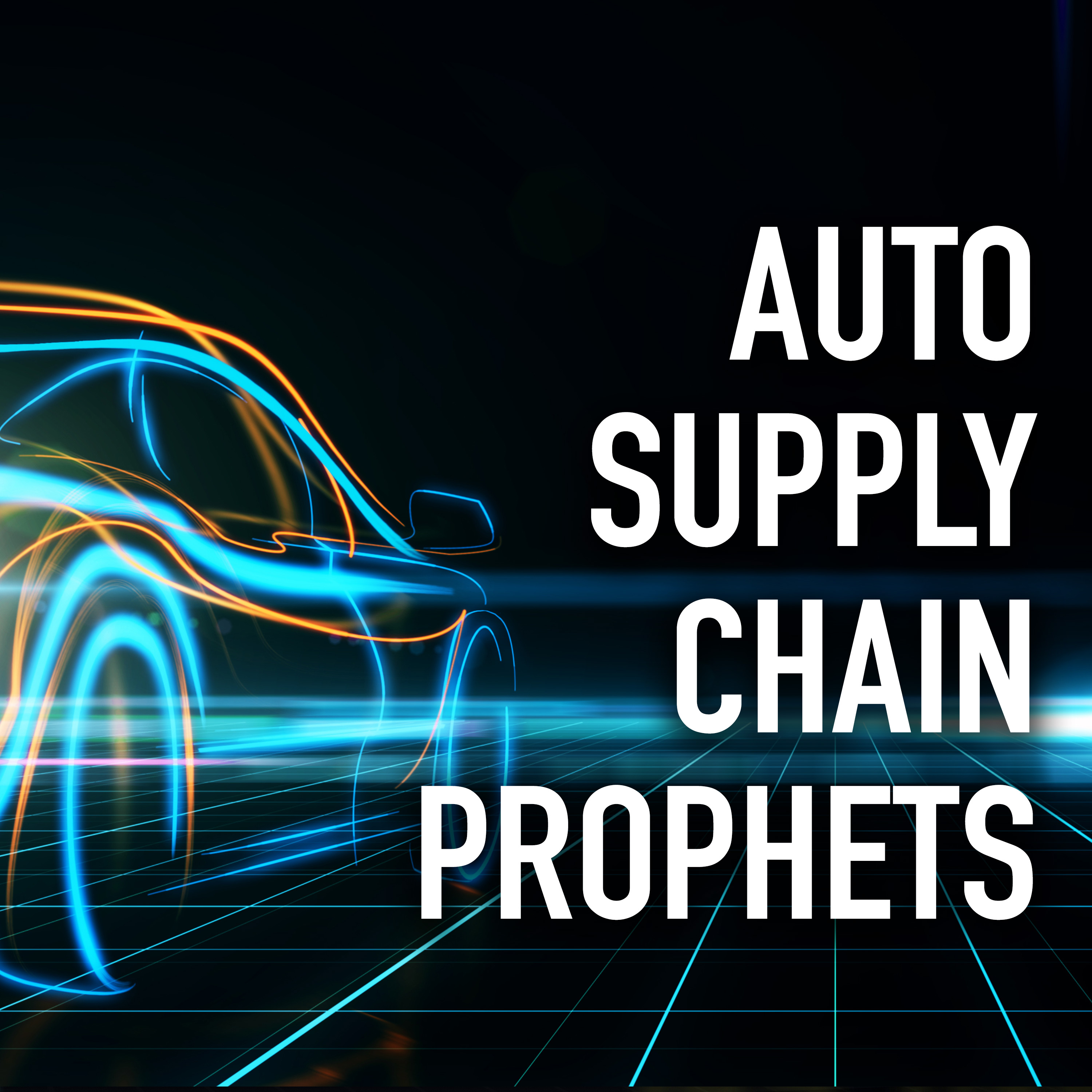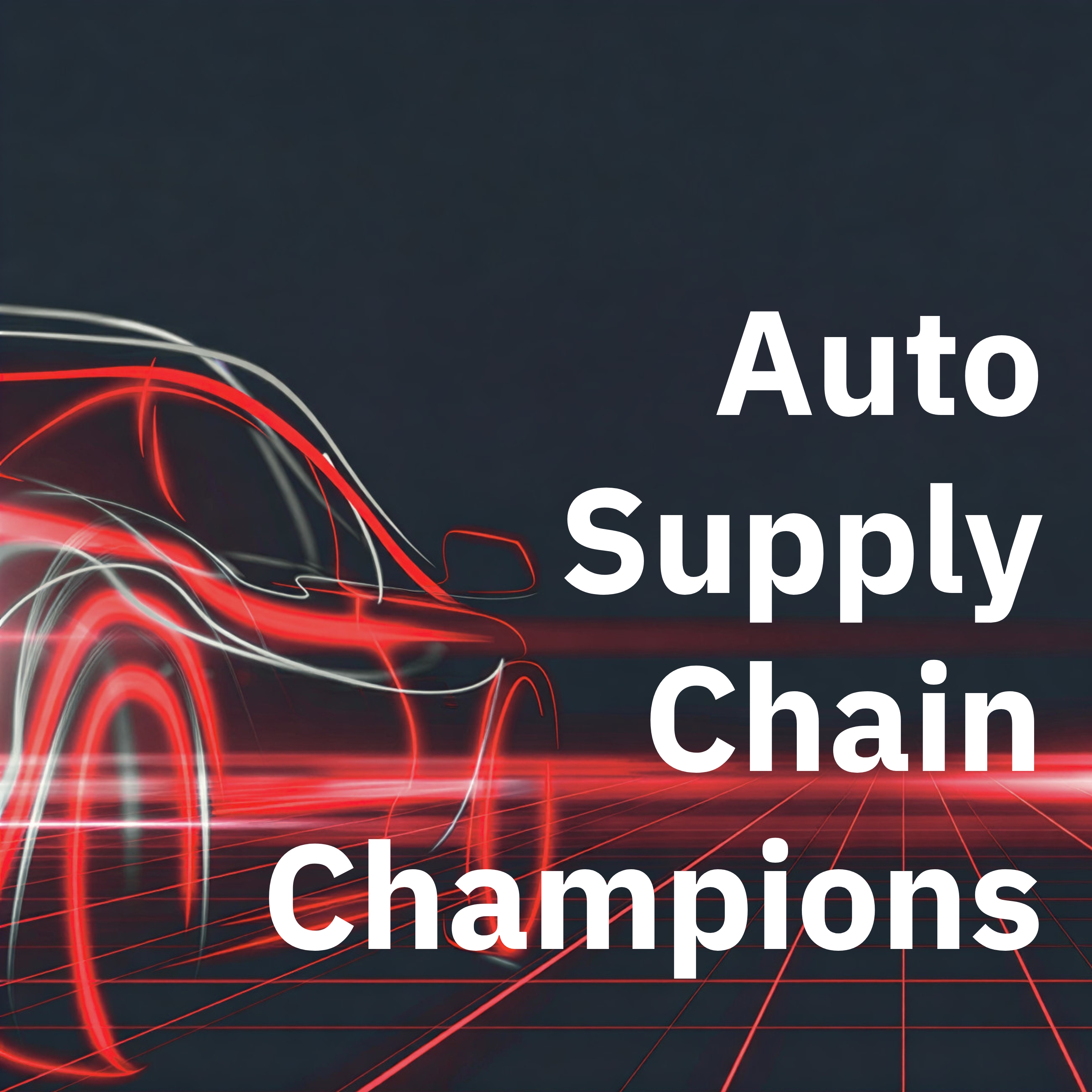Collaborative Excellence: Merging Quality and Supply Chain
In this episode of the Auto Supply Chain Prophets podcast, co-hosts Terry Onica and Jan Griffiths welcome Steve Povenz, a recognized leader in automotive quality, to discuss the crucial integration of quality and supply chain functions.
Steve believes quality and supply chain are inseparable and fundamental to an organization's success. He points out that many organizations fail because these functions operate in silos, leading to inefficiencies and missed opportunities for improvement.
He stresses that quality should be proactive and collaborative, engaging with other departments to understand and mitigate issues before they arise.
Steve highlights the importance of regular cross-functional reviews and the use of technology to bridge gaps, streamline processes, and enhance data accuracy. He praises Terry and Cathy Fisher's 24 Essential Supply Chain Processes as a comprehensive roadmap for improving these integrations.
Jan and Steve discuss the impact of leadership and culture in fostering collaboration between quality and supply chains. Steve says effective leadership and shared goals lead to successful outcomes regardless of organizational structure.
They touch upon the need for evolving standards like IATF 16949 to keep pace with industry changes, particularly the shift from internal combustion engines to electric vehicles.
Steve encourages quality professionals to engage with AIAG, participate in summits, and provide feedback to help shape the future of automotive quality standards.
The episode concludes with Steve's practical advice for leaders in the automotive supply chain: engage with quality counterparts, involve them in daily operations, and leverage their expertise to solve problems collaboratively.
Themes discussed in this episode:
- The importance of integrating quality and supply chain functions within organizations
- The issue of quality and supply chain functions operating in silos and the negative impact of this separation
- Leadership's role in fostering collaboration between quality and supply chain functions
- How technology can automate processes, enhance data collection, and improve overall efficiency within quality and supply chain operations
- The use of performance scorecards, such as those mandated by IATF 16949, to measure and manage quality and delivery performance within the supply chain
- The potential benefits of leveraging frameworks like the 24 Essential Supply Chain Processes to align quality and supply chain operations
- Why quality and supply chain functions need to adapt to rapid changes in the automotive industry, particularly with the shift from ICE to BEV
- How to achieve continuous improvement through the use of technology, better integration of functions, and proactive identification and resolution of pain points within the supply chain
Featured on this episode:
Name: Steve Povenz
Title: Visionary Global Quality Leader, Director of Quality at Shape Corp.
About: Steve is a visionary global quality leader with extensive expertise in Quality Management Systems (QMS) and project management. As the Director of Quality at Shape Corp. for 18 years, he has driven significant improvements in customer satisfaction, cost reduction, and quality standards. Steve excels in fostering organizational growth, creating an empowered employee experience, and enhancing stakeholder engagement. His multicultural corporate background highlights his proficiency in quality leadership and relationship management. Additionally, Steve actively contributes to industry groups, including the AIAG and Eastern Michigan University, and serves on Nissan Motor Corporation's Supplier Quality Council.
Connect: LinkedIn
Mentioned in this episode:
- IATF 16949 - 2016
- Episode with PennEngineering: Why Automating your QMS improves your Supply Chain Performance
- The 24 Essential Supply Chain Processes
- PDCA Cycle
- (MMOG/LE) Materials Management Operations Guideline/Logistics Evaluation
- (FMEA) Failure Mode & Effects Analysis
- Advanced Product Quality Planning (APQP)
- 2024 Quality Summit
Episode Highlights:
[03:11] Quality and supply chain: Both quality and supply chain are crucial, and recognizing their interdependence is critical to organizational success.
[03:50] Addressing silos: Steve highlights the need for quality functions to proactively collaborate and take accountability to build a resilient supply chain.
[07:08] 24 Essential Processes: Steve praises the 24 Essential Supply Chain Processes as an excellent roadmap for integrating quality and supply chain functions to enhance overall effectiveness.
[12:44] Leadership and Collaboration: Effective collaboration and shared goals between quality and supply chain leaders are crucial to achieving organizational success and leveraging technology effectively.
[19:03] Adapting to EV Risks: As the industry shifts to electric vehicles, IATF 16949 processes must strengthen risk management and agility to keep pace with rapid technological changes.
[20:34] Volunteering at AIAG: Steve encourages professionals to get involved with AIAG, highlighting the benefits of networking and contributing to industry best practices through volunteering and providing feedback.
[23:38] Invite them over: Steve offers practical advice for leaders in the automotive supply chain on improving collaboration with their quality counterparts.
Top Quotes:
[03:15] Steve: “Terry, when we first met, we had the conversation, and I had joked with you a little bit, and I said, 'Quality, Terry, is everything.' But you could also turn around and say to me, 'Oh, Steve, supply chain is everything,' and the truth is, we would both be right. There is no quality without a supply chain, and it's important that we recognize that. In fact, we could even say that it starts with the supply chain. No matter where you're at, you're dependent upon your supply chain for your performance as an organization.”
[08:05] Steve: “Utilizing the 24 Essential Processes of Supply Chain really sets you up for planning, execution, monitoring, and corrective action; that whole PDCA cycle that needs to take place within the supply chain. If the quality professional is not engaged with those and doesn't understand what's being done upstream, that's going to make their job a lot more difficult in manufacturing.”
[10:31] Steve: “All functions throughout the organization need to be committed to that common goal of safely delivering a quality product to our customer on time, every time, at the lowest possible cost, and we need to continue to work to drive that cost down, and quite often, the use of technology can help us. Whether it's more accurate ordering, faster responses throughout the supply chain, and that connection to our operations, leveraging technology to do that is really vital.”
[14:38] Steve: “No matter where supplier quality resides, if it's in the supply chain or it's reporting up to the quality function, if we're siloed, one silo is going to be disappointed and feel like they're not being served. It's vitally important for quality function leadership along with the supply chain leadership to be synced up, to be seeing things the same way, to have that common goal, and how we're going to get there.”
[19:47] Steve: “New products and new processes mean risk. Couple that with our speed to market because we're going at a breakneck speed now more than ever, and it's going to continue to get more. We were taking on this increased risk when we had less time to mitigate that risk. So, I think, while the last revision of the IATF 16949 really was focused on risk, I think that we need to even strengthen that more and look at our supply flows and look at making sure that we have processes that are agile so that we can adapt to this added risk in the time that we need to execute on the deliverables and get to market with a quality product.”
[24:30] Steve: “The quality professional would certainly love that opportunity to help. Just inviting them in, developing that relationship, and solving problems together will go a long way to bridging that gap and breaking down the silos.”
Transcript
[Transcript]
[: [: [: [: [: [: [: [: [: [: [: [: [: [: [: [: [: [: [: [: [: [: [: [: [: [: [: [: [: [: [: [: [: [: [: [: [: [: [: [: [: [: [: [: [: [: [: [:
